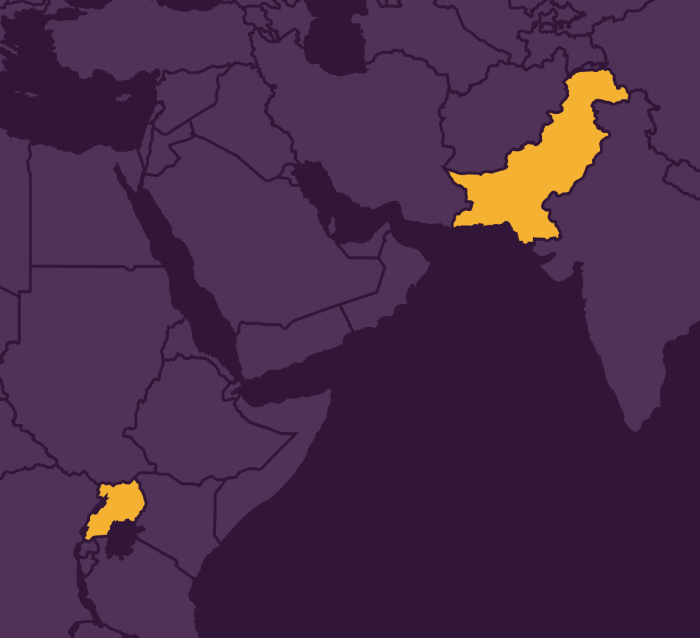ReLAB-HS is currently working two countries:
ReLAB-HS has completed work in two additional countries:
These countries have been selected because they represent a range of health, human development and equity indicators, burden of disease, and conflict and disaster risks. All countries have experienced or are currently experiencing conflict, as well as a complex set of conditions affecting health, health care, and approaches to rehabilitation and assistive technology (AT). These diverse health system conditions—including different health financing models, overall health system resourcing, adequacy of human resources, and varied progress in integrating rehabilitation and AT into health systems—provide a solid basis for learning.
In each country, there is interest and support on the part of key stakeholders to integrate rehabilitation and AT into the health system, and our consortium partners have built strong relationships with the ministry of health, academia, service providers, professional associations, the private sector, nongovernmental organizations (NGOs), and civil society actors. With support from our local partners, we are engaging with five main stakeholder groups: policymakers and leaders, community health workers, primary care providers, skilled rehabilitation professionals, and people requiring rehabilitation and/or AT. This approach will help ensure that ReLAB-HS activities complement current efforts to strengthen the health system for rehabilitation and AT.
ReLAB-HS also aims to partner with collaborators in additional countries and globally to highlight and learn from successful innovations to expand access and integration of rehabilitation and AT. We will seek to understand the factors for success and explore the feasibility of adapting those solutions and bringing them to additional contexts. This will help build links beyond our initial focus countries and set the scene for wider impacts of ReLAB-HS.


